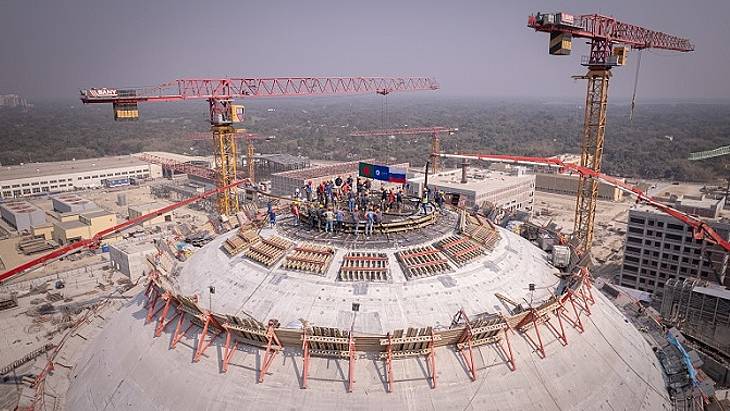Uttam Kumar Karmaker, additional secretary of the Ministry of Finance's Economic Relations Division, told Nikkei Asia: "Because of the sanctions against Russian banks, we couldn't process payments in US dollars. Russia asked us to settle the payments in their currency, rubles, but that was not feasible. So we both opted for yuan."
According to Nikkei Asia, the payments will go via a Chinese bank through China's Cross-Border Interbank Payment System (CIPS), its alternative to the US dollar and euro dominated SWIFT cross-border banking system.
Rosatom in February 2011 signed an agreement for two reactors to be built at Rooppur for the Bangladesh Atomic Energy Commission. The initial contract for the project, worth USD12.65 billion, was signed in December 2015. It is being 90% financed by a Russian loan at an interest rate of Libor plus 1.75% capped at 4%, repayable over 28 years, with a 10-year grace period.
The Rooppur plant, 160 kilometres from the capital Dhaka, will feature two Russian VVER-1200 reactors. Last October the project director Shaukat Akbar was quoted by the Dhaka Tribune as saying they were hoping to meet the target of starting production of the first unit on a trial basis by the end of 2023 and "be fully ready to supply in 2024".
Bangladesh's The Business Standard says repayment of parts of the loan for the construction has begun but there is currently a USD318 million repayment pending as a result of the sanctions ending the use of the SWIFT system. The newspaper also reports that other trade between Bangladesh and Russia is likewise going to be settled in the Chinese currency.
Sanctions imposed by the USA on Russia as a result of its war with Ukraine also forced a rethink of deliveries for the plant earlier this year, with 69 Russian ships barred from Bangladesh's ports to comply with US sanctions - although there was no ban on the import of the goods themselves. That led to delivery delays as alternative routes, or vessels, were arranged. The situation led to the Russian Foreign Ministry's Maria Zakharova telling a media briefing in February that Russia recognised the pressure the USA was putting on countries "to comply with anti-Russian sanctions" but added that "we expect the leadership of Bangladesh to find the strength to assert its national interests more resolutely".















